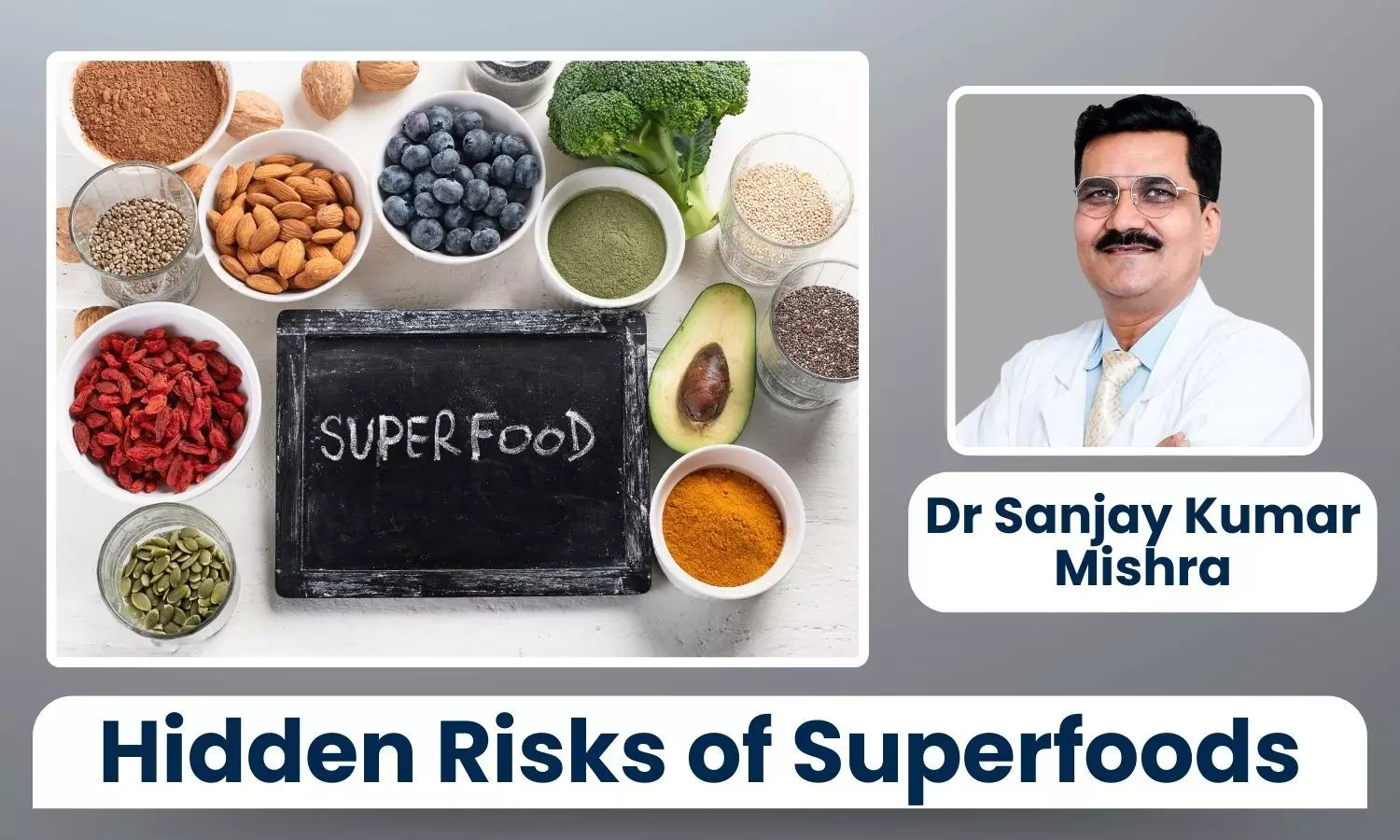Are All Superfoods Really Safe? The Hidden Risks No One Talks About - Dr Sanjay Kumar Mishra

We live in a time where every other food is labelled a “superfood.” From chia seeds and protein powders to detox teas and soy products, these items are sold as miracle fixes for health. But are they really that safe? Or is this idea of superfoods just a modern-day myth?
With many young adults now consuming these superfoods in excess, the question becomes more urgent: can these so-called superfoods truly make us healthier, or could they be silently creating problems for our digestion, joints, or even vital organs?
The Balance Our Bodies Actually Need
Good health depends not on one or two “magic” foods but on balance. The human body requires all five food groups every day: cereals and millets, pulses and legumes, fruits and vegetables, milk and meat products, and fats and oils.
No single food can give the body everything it needs. Even milk, often called the most balanced food, falls short as it lacks vital nutrients like Vitamin C and iron. The right mix of foods depends on a person’s age, gender, and activity level
For example, a sedentary adult male may require approximately 2,100 calories daily, while a female of the same age group may need only 1,620 calories. This gap highlights why blindly adding so-called superfoods without considering overall balance can skew nutrition in the wrong direction.
When Superfoods Backfire
Seeds, powders, and protein-rich products may appear healthy, but their overuse often causes more harm than benefit. Excess oil seeds like chia or flax can lead to bloating, abdominal discomfort, loose motions, or vomiting.
Protein powders, especially whey, can trigger digestive issues or allergic reactions in sensitive people. In the long run, high protein intake without medical guidance puts strain on the liver and kidneys, raises blood pressure, and may even cause joint pain such as gouty arthritis.
Far from building muscle, it can gradually weaken the body if not absorbed properly.
Food Combinations Matter Too
It’s not only what we eat, but how we combine it, that affects health. The doctor cautioned against mixing milk with non-vegetarian food or with citrus fruits, as these combinations can disturb digestion.
Curd, on the other hand, is usually well tolerated. Similarly, heavy reliance on soy products or sattu may not suit everyone, as some people can develop nausea, indigestion, or allergies when consuming them. This is why moderation and careful pairing of foods are as important as the foods themselves.
Nutrition in Special Health Conditions
For patients with diabetes, kidney disease, or heart conditions, the risks of overusing so-called superfoods are even higher. A diabetic patient may benefit from slightly higher protein intake, like about 1.2 grams per kilogram of body weight, but if the kidneys are compromised, protein becomes harmful and must be restricted.
In kidney disease, protein intake is carefully adjusted depending on the stage of illness, ranging from as low as 0.5 grams per kilogram in advanced cases to higher allowances during dialysis. This shows that what is “healthy” for one person can be dangerous for another.
Traditional Meals Still Do the Job Best
There is no single food on earth that can be called a “superfood.” Even the healthiest options lose their value if taken in excess or without balance. A better approach is to rely on traditional, simple meals that naturally combine nutrients like curd rice, roti with dal, or sattu in moderation rather than chasing after quick fixes.
Eating right is not about following food fads but about moderation, balance, and tailoring the diet to individual needs.
Disclaimer: The views expressed in this article are of the author and not of Health Dialogues. The Editorial/Content team of Health Dialogues has not contributed to the writing/editing/packaging of this article.


